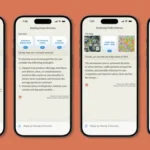In the ever-evolving landscape of healthcare and medical research, innovation is the driving force behind breakthroughs. Google Cloud, a leading player in the tech industry, is taking a giant leap by harnessing the power of generative AI for medical search capabilities. In this article, we delve into the fascinating realm of AI-driven medical research and how Google Cloud is revolutionizing the field.
The Intersection of Technology and Medicine
The synergy between technology and medicine has the potential to reshape the healthcare industry. Google Cloud recognizes this intersection and is committed to pushing the boundaries of what’s possible. With the introduction of generative AI, the capabilities of medical research are expanding exponentially.
A Closer Look at Generative AI
Generative AI, often referred to as artificial creativity, is a branch of artificial intelligence that focuses on enabling machines to generate content that is both creative and contextually relevant. In the realm of medical research, this translates into the ability to analyze vast datasets, extract meaningful insights, and generate hypotheses.
How Google Cloud’s Generative AI Works
Google Cloud’s generative AI leverages state-of-the-art deep learning algorithms to process an extensive array of medical data, including research papers, clinical trials, and patient records. Here’s an overview of how it operates:
1. Data Ingestion
The AI system ingests an extensive corpus of medical literature, encompassing diverse topics, specialties, and languages. This vast dataset forms the foundation for knowledge extraction.
2. Contextual Understanding
Google Cloud’s generative AI goes beyond simple keyword matching. It understands the context of medical terms and concepts, allowing it to make nuanced connections and identify relevant information.
3. Hypothesis Generation
Based on its analysis, the AI system generates hypotheses and research questions, often uncovering insights that might elude human researchers due to the sheer volume of available data.
4. Accessibility
One of the key advantages of Google Cloud’s generative AI is its accessibility. Medical professionals, researchers, and institutions can tap into this powerful resource to enhance their work.
The Promise of Google Cloud’s Generative AI
The implications of this innovative approach to medical research are profound:
1. Accelerated Discoveries
Generative AI has the potential to accelerate the pace of medical discoveries, leading to more efficient drug development, treatment protocols, and diagnostic tools.
2. Personalized Medicine
By analyzing individual patient data on a massive scale, AI can contribute to the development of highly personalized treatment plans, improving patient outcomes.
3. Enhanced Collaboration
Google Cloud’s generative AI fosters collaboration among researchers, enabling them to pool their collective knowledge and insights.
Conclusion
As we stand on the cusp of a new era in medical research, Google Cloud’s generative AI emerges as a powerful ally in the quest for knowledge and innovation. By seamlessly integrating technology and medicine, we are poised to unlock a future where healthcare is more personalized, discoveries are accelerated, and collaboration knows no bounds.
Don’t miss out on the transformative potential of Google Cloud’s generative AI. Get Access Now and be part of a medical revolution driven by innovation and artificial intelligence.










